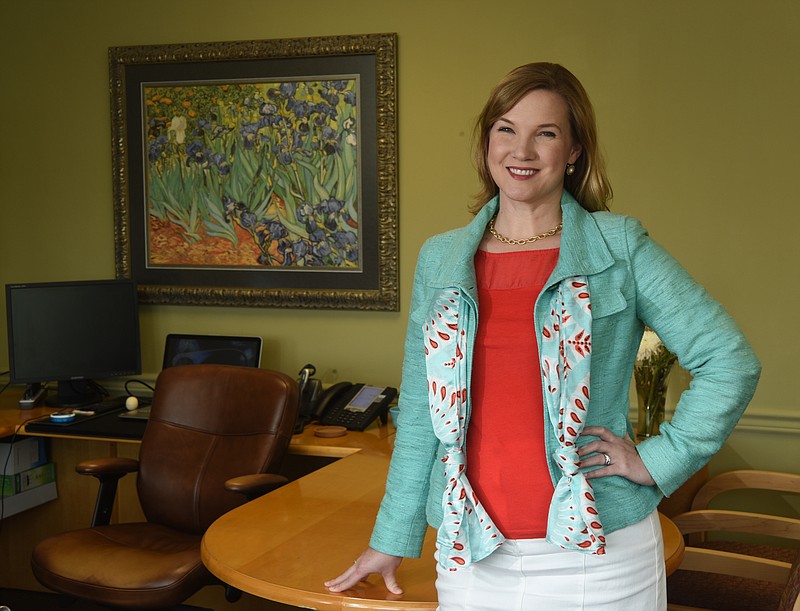
How much money should you sock away for retirement?
Probably a lot more than you have saved - if you're the typical American.
The "4 percent" rule of thumb says you need enough stashed away to withdraw 4 percent a year after retirement, mainly in dividends and interest.
So you'd need $500,000 saved to draw down $20,000 annually to supplement whatever Social Security you get.
Now for the bad news:
The median U.S. family between the ages of 32 and 61 has only $5,000 saved in a retirement account, while the top 1 percent of families has a million dollars or more, says a 2016 report by Economic Policy Group (EPI) economist Monique Morrissey.
"For many groups - lower-income, black, Hispanic, non-college-educated, and unmarried - the typical working-age family has no savings at all in these accounts," says EPI, a nonprofit, nonpartisan think tank that was created in 1986 "to include the needs of low- and middle-income workers in economic policy discussions."
Nearly half of all working-age families have zero retirement savings, EPI says.
While local financial advisors agree that such facts and figures can be frightening, they say individuals of any age can take steps to improve their situation.
"It is a coming economic crisis," said Jim Place, managing partner of Evergreen Advisors, LLC, and host of Chattanooga's popular daily financial radio show, "Let's Talk Money," on WGOW 102.3 FM.
"Anyone over 30 not saving 20 percent of [their gross income] is dead in the water. They just don't know it," said Place.
'PLAY IT WHERE IT LIES'
But like a golfer who hits the ball into the woods or on the high rough, "wherever it goes, you gotta play it," Place said of a person's financial situation.
"If my game plan stays the same, I'm screwed," he said. "So I've got to change something."
Start saving at age 50, he said, and you can still accumulate enough in 20 years to make a big difference in retirement for a couple that expects $3,000 a month in Social Security.
The couple could adopt a 20-year game plan, watch their expenses and save $500 a month.
That's $6,000 a year which adds up to $120,000 plus growth, he said, which should produce around $200,000 in retirement savings.
"That $200,000 that they would save by 70 would [make the difference]," he said.
Jennifer Harper, the director of Bridge Financial Planning, LLC, says that people didn't get the education about the need to save as society switched from pension plans with defined benefits to 401ks and IRAs that put the onus to save and invest on employees.
"Nobody was saying, 'Here's how much you need to put into a 401k since you don't have a pension anymore,'" she said. "It really did shift from employers to employees, and we haven't caught up on the education side of that."
That said, Harper's not a fan of the 4 percent rule or other cut-and-dried numbers that recommend how much someone should save.
"I actually hate when it's all boiled down to a number like that," she said.
Retirement savings can go a long ways - or run out more quickly - depending on a person's spending habits and plans for such things as travel, Harper and Place say.
"Do you want to spend your weekends in Paris, or do you want to spend your weekends in Soddy-Daisy?" Place asked.
All kidding aside, Place said that a couple that likes camping can retire on less than a couple with more expensive travel tastes.
Save more - or boost your earnings
It's important to start saving early, Harper and Place agree.
One advantage of frugality before retirement is that you're used to living on less when retirement comes, they say.
"A lot of millennial are not wanting to take on debt," Harper said. "They are better savers."
Or, you can boost your earnings, said Place, who said he wasn't serious about money until age 45.
He's saved the bulk of his income since then, he says.
He didn't earn much, he said, years ago as a football coach at the University of Tennessee, University of California Los Angeles and the University of Northern Illinois.
"I was really blessed - I actually in later life, out-earned my stupidity," said Place - who doesn't recommend that as a financial strategy.
Both financial planners say that people who save for retirement should factor in the possibility of unforeseen events, such as job loss, underemployment or a medical crisis.
"Give yourself some leeway," Place said.
Fidelity Investments recently released a study that showed that the "average" 65-year-old couple can expect to pay $260,000 out-of-pocket on medical expenses during retirement.
"I'll say the biggest unknown for a lot of people in retirement is the cost of health care," Harper said.

